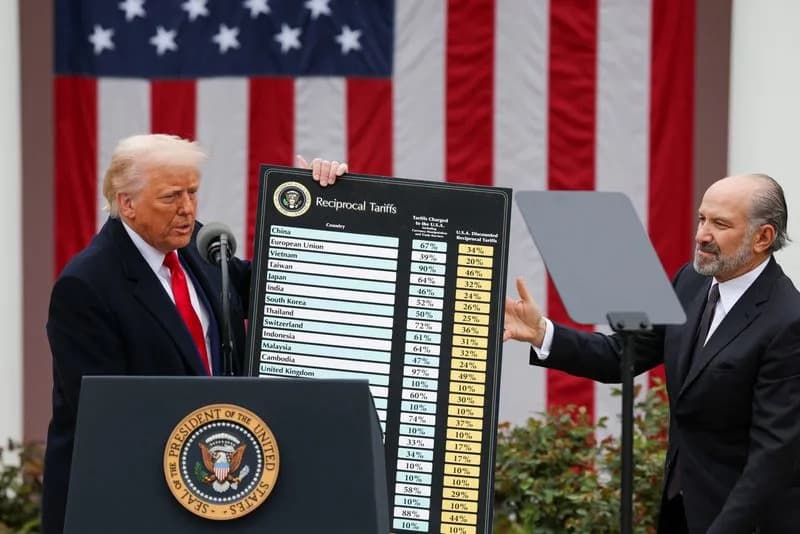President Trump signed an executive order exempting many common food imports—such as coffee, bananas, select beef cuts, produce and spices—from previously imposed tariffs to help lower grocery prices. The move contrasts with his earlier claims that consumers were not bearing tariff costs and follows a Goldman Sachs estimate that households paid roughly 22% of tariff bills through June. Government data show food-at-home costs rose about 2.7% year-over-year, while uncooked beef jumped 12%–18% and coffee rose about 21% in August; the exemptions aim to ease political and household pressure over rising grocery bills.
Trump Exempts Coffee, Bananas and Select Beef from Tariffs to Try to Lower Grocery Prices
Trump signs executive order carving out food imports from tariffs
President Donald Trump on Friday signed an executive order exempting a wide range of everyday food imports from higher tariffs his administration had imposed, a move officials framed as an effort to relieve rising grocery bills and ease pressure from persistent inflation.
The exemptions cover staples such as coffee, cocoa and bananas, select beef cuts, and fresh produce including tomatoes, avocados, coconuts, oranges and pineapples. The list also names seasonal items and spices such as nutmeg, vanilla beans, cinnamon and cardamom.
This rollback marks a clear reversal from the administration’s earlier claims that consumers were not bearing tariff costs. In August, Trump disputed a Goldman Sachs estimate that shoppers had borne roughly 22% of tariff bills through June, saying on Truth Social that it was mostly companies and foreign governments paying the tab.
“Also, it has been shown that, for the most part, consumers aren't even paying these tariffs,” Trump wrote. “It is mostly companies and governments, many of them foreign, picking up the tabs.”
The White House did not immediately respond to requests for comment about the timing or scope of the exemptions.
Why this matters
Among items closely watched by consumers were beef and coffee. Over the past year, the administration had imposed steep duties on major beef exporters—including a reported 75% tariff on beef from Brazil and 15% on imports from New Zealand—and a 50% tariff on Brazilian coffee, while Brazil supplies about one-third of U.S. coffee needs. Those levies sit alongside other tariffs that have raised costs for domestic ranchers by increasing prices for fertilizers, farm equipment and steel.
Government data show overall food-at-home costs were about 2.7% higher year-over-year, but some items saw much larger increases: uncooked beef rose roughly 12%–18%, and coffee prices climbed about 21% in August versus the same month in 2024, according to the Bureau of Labor Statistics.
Critics argue the broader tariff regime compounded household strain as officials contend with a backlog of SNAP benefits and recovery from a recent government shutdown. The exemptions appear aimed at blunting political backlash over high grocery bills; consumers and policymakers will now watch whether wholesale changes translate into lower retail prices.
Bottom line: The carve-outs are a politically significant rollback of previous tariff policy meant to address near-term consumer pain at the grocery store, but it remains uncertain how quickly or substantially retail prices will fall.
Help us improve.




























